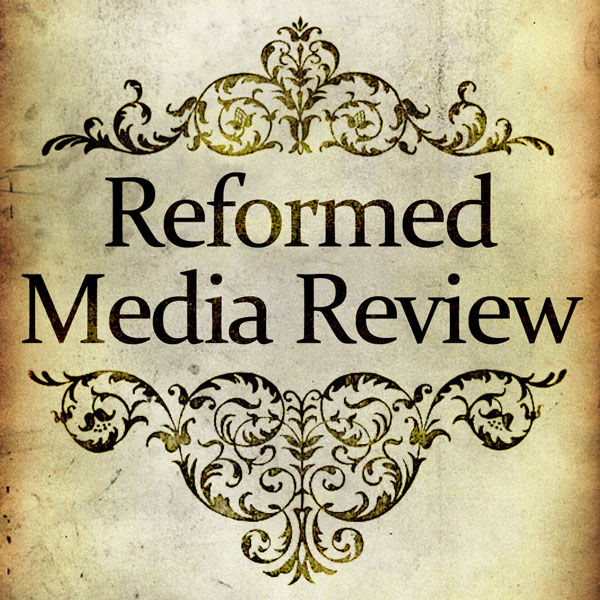
Reformed Media Review
Reformed Theological Resources
- John Carrick — Jonathan Edwards and the Immediacy of God
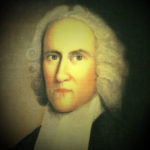
Jeff Waddington reviews Jonathan Edwards and the Immediacy of God by John Carrick.
Jonathan Edwards is one of the outstanding figures in the history of the Christian church—he was, quite simply, a man of towering intellect and towering spirituality. But it has been noted, even by his friends and admirers, that his thought is also marked at times by certain idiosyncrasies which inevitably introduce certain complexities into his philosophical-theological system.
This study contends that the theme of divine immediacy is the controlling theme and the correlating principle within Edwards’s thought. It analyzes the theme of divine immediacy in the thought of Jonathan Edwards under four major heads: creation, the will, ecclesiology, and spiritual experience. Indeed, Dr. Carrick claims that the theme of the immediacy of God is the Ariadne’s thread, which runs with consistency through the multiple aspects of Edwards’s philosophical, theological, ecclesiological, experiential, and homiletical interests.
But sometimes a man’s strength is also his weakness, and it would appear that Edwards’s profound commitment to the concept and the reality of the immediacy of God entails significant problems for his entire philosophical-theological system. Edwards’s concept of divine immediacy finds its supreme expression, surely, in his doctrine of continuous creation; but is it not the case that this doctrine of continuous creation is in conflict with his determinism, that its tendency is to destroy the moral responsibility of man, and that it makes God both the author and the actor of sin? In short, is it not the case that Edwards’s Ariadne’s thread is, in fact, also his Achilles’ heel?
Chapters
00:00 Introduction
00:45 Jonathan Edwards and the Immediacy of God
04:32 Occasionalism and Continuous Creationism
10:30 The Context of Edwards’ Theology
13:52 The Ariadnes Thread of Edwards’ Thought
17:33 ConclusionParticipants: Camden Bucey, Jeff Waddington
10 November 2021, 5:00 am - Cornelis Pronk — A Goodly Heritage
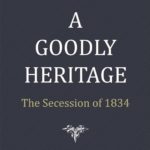
Jeff Waddington reviews A Goodly Heritage: The Secession of 1834 by Cornelis Pronk.
In A Goodly Heritage, Cornelis Pronk surveys the history of the Secession of 1834, beginning with the events leading up to this important spiritual movement and subsequently following its long journey through the Netherlands and North America until 1892. He then focuses on a small minority that decided to continue as the original Christian Reformed Church, considering its growth and how it formulated theological positions in relation to several other Reformed denominations. Throughout, special attention is given to the doctrines of covenant, baptism, and the Holy Spirit’s ministry in applying salvation. This work not only explains the concerns of De Cock and other fathers of the Secession. It presses beyond the early years of the reform movement to present a larger picture of the developments of Secession theology and the contributions made by its main representatives.
Chapters
00:00 Introduction
00:29 Cornelis Pronk, A Goodly Heritage
01:41 The Secession of 1834
10:17 Identifying the True Church
12:33 Dutch Pietism
13:39 Dutch Settlement in Pella, Iowa
14:58 Summary and ConclusionParticipants: Camden Bucey, Jeff Waddington
2 November 2021, 5:07 pm - Therefore the Truth I Speak: Scottish Theology, 1500–1700
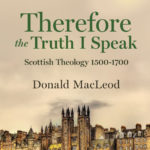
Jim Cassidy discusses Therefore the Truth I Speak: Scottish Theology, 1500–1700 by Donald Macleod.
The Scottish church was forever altered by the arrival of the Reformation in the sixteenth century. Its legacy endured, and provoked a flurry of theological re–examinations which form the foundation for much of our modern understanding of Reformed Theology. In this informed and accessible historical study, Donald MacLeod, one of Scotland’s current leading theologians, looks to the past to assess the impact of prominent theologians of the sixteenth and seventeenth centuries, always with an eye to demonstrating how their writings speak to contemporary challenges facing the Church today.
Participants: Camden Bucey, Jim Cassidy
1 July 2021, 4:00 am - Discussing Foundations of Covenant Theology
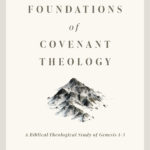
Lane Tipton speaks about his new book, Foundations of Covenant Theology, available now through Reformed Forum.
Drawing from Genesis 1:1 and subsequent biblical revelation, Lane Tipton argues that before creating the visible world, the immutable triune God created a heavenly temple dwelling, filled that heavenly dwelling with the unchanging glory of his Spirit, and sanctified that heavenly dwelling as the realm of everlasting Sabbath rest.
Adam, as the created image of God and federal head of his posterity, could have advanced through perfect covenantal obedience beyond probation on the mountain of God in earthly Eden into the heavenly dwelling of God in Sabbath rest. This God-centered and heaven-focused theological backdrop enriches our understanding of the person and work of Jesus Christ, as the second and last Adam in the covenant of grace, who in his humiliation and exaltation has opened the gates of heavenly paradise for his church.
Copies are available now.
Participants: Camden Bucey, Lane G. Tipton
24 June 2021, 4:00 am - The Auburn Betrayal
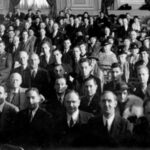
Camden Bucey speaks about Murray Forst Thompson’s tract, The Auburn Betrayal, which provides historical and theological context for the Auburn Affirmation, an important document in early twentieth-century American Presbyterianism. The tract was published in 1941 by the Committee on Christian Education for the Orthodox Presbyterian Church.
Participants: Camden Bucey
10 June 2021, 4:00 am - On Our Radar [19 May 21]

- Durham, James. Commentary on Revelation: Volume 2, Lectures on Chapters 4–11 (Reformation Heritage Books, May 2021). 504 pages. $50.00. Hardcover.
- Guinness, Os. The Magna Carta of Humanity: Sinai’s Revolutionary Faith and the Future of Freedom (IVP Academic, May 2021). 288 pages. $25.00. Hardcover with jacket.
- Lynch, Michael J. John Davenant’s Hypothetical Universalism: A Defense of Catholic and Reformed Orthodoxy (Oxford Studies in History Theology series) (Oxford University Press, June 2021). 272 pages. $99.00. Hardcover.
- Hampton, Stephen. Grace and Conformity: The Reformed Conformist Tradition and the Early Stuart Church of England (Oxford Studies in History Theology series) (Oxford University Press, June 2021). 424 pages. $99.00. Hardcover.
- Bruening, Michael W. Refusing to Kiss the Slipper: Opposition to Calvinism in the Francophone Reformation (Oxford Studies in History Theology series) (Oxford University Press, June 2021). 384 pages. $99.00. Hardcover.
- Powlison, David. The Pastor as Counselor: The Call for Soul Care (Crossway, June 2021). 80 pages. $7.99. Paperback.
- Drake, K. J. The Flesh of the Word: The extra Calvinisticum from Zwingli to Early Orthodoxy (Oxford Studies in Historical Theology series) (Oxford, June 2021). 328 pages. $99.00. Hardcover.
- Rhodes, Jonty. Man of Sorrows, King of Glory: What the Humiliation and Exaltation of Jesus Mean for Us (Crossway, June 2021). 160 pages. $17.99. Paperback.
- Mezei, Balázs M. et al. (eds.) The Oxford Handbook of Divine Revelation (Oxford University Press, June 2021). 736 pages. $145.00. Hardcover.
- Steward, Gary Lee. Justifying Revolution: The Early American Clergy and Political Resistance (Oxford University Press, June 2021). 224 pages. $74.00. Hardcover.
Participants: Camden Bucey, Ryan Noha
19 May 2021, 4:00 am - On Our Radar [12 May 21]

- DeYoung, Kevin. Men and Women in the Church: A Short, Biblical, Practical Introduction (Crossway, April 2021). 176 pages. $19.99. Paperback.
- Gronewoller, Brian. Rhetorical Economy in Augustine’s Theology (Oxford University Press, April 2021). From the Oxford Studies in Historical Theology series. 224 pages. $99.00. Hardcover.
- Tripp, Paul David. Marriage: 6 Gospel Commitments Every Couple Needs to Make (Crossway, April 2021). 384 pages. $24.99. Hardcover with jacket.
- Kruger, Michael J. Surviving Religion 101: Letters to a Christian Student on Keeping the Faith in College (Crossway, April 2021). 272 pages. $16.99. Paperback.
- Gallagher, Robert L. and Smither, Edward L. Sixteenth Century Mission: Explorations in Protestant and Roman Catholic Theology and Practice (Lexham, April 2021). From the Studies in Historical and Systematic Theology series. 504 pages. $29.99. Paperback.
- Crisler, Channing L. and Plummer, Robert L. Always Reforming: Reflections on Martin Luther and Biblical Studies (Lexham, April 2021). From the Studies in Historical and Systematic Theology series. 344 pages. $29.99. Paperback.
- Plumer et al. The Pastor, His Call, Character and Work (Banner of Truth, 2021). Written by faculty and friends of Old Princeton with an introduction by Sinclair Ferguson. 272 pages. $20.00. Hardcover.
- Jamieson, R. B. The Paradox of Sonship: Christology in the Epistle to the Hebrews (IVP Academic, May 2021). From the Studies in Christian and Doctrine Series. 240 pages. $30.00. Paperback.
- Helopoulos, Jason. The Promise: The Amazing Story of our Long-Awaited Savior (Crossway, May 2021). 64 pages. $15.99. Hardcover with jacket. Illustrated by Rommel Ruiz.
- Timmer, Daniel C. Obadiah, Jonah and Micah: An Introduction and Commentary (Tyndale Old Testament Commentaries, Vol 26) (IVP Academic, May 2021). 272 pages. $25.00. Paperback.
Participants: Camden Bucey, Ryan Noha
12 May 2021, 4:00 am - Loetscher, The Broadening Church: A Study of Theological Issues in the Presbyterian Church Since 1869

Camden Bucey and Lane Tipton discuss Lefferts A. Loetscher, The Broadening Church: A Study of Theological Issues in the Presbyterian Church Since 1869 (University of Pennsylvania Press, 1954). This book is indispensable as a thoughtful and well-researched rationale for the reorganization of Princeton Seminary in 1929. It is a history told from the perspective of the mediating conservatives, who viewed Machen and other fundamentalists as “extreme conservatives.”
From the Publisher:
The far-reaching social and intellectual changes in the United States since the Civil War have had a definite effect upon the religious thought of American churches. In this volume, a distinguished scholar and theologian has undertaken an inductive study of theological issues in one of the major denominations, the Presbyterian church in the United States of America. Since this church was in the thick of the social and intellectual ferment that changed the living and thinking habits of Americans, much that transpired in it finds broad parallels in other leading American churches. Thus, the story of the Presbyterian church is, in essence, a kind of theological barometer of American history. Avoiding sweeping generalizations, Lefferts A. Loetscher briefly traces the history of the Presbyterian church from its founding by New England Puritans on Long Island in the 1640s to the disruption of 1837 and the “wedding day” of Old School and New School Presbyterians in 1870, following the reunion of 1869. From this point, he examines in detail the development of the church, analyzing the controversies that occurred over the years, interpreting the various theological issues that led to disputes.
Lefferts A. Loetscher was Professor Emeritus of American Church History at Princeton University. He is the author of A Brief History of the Presbyterians.
Links
- George M. Marsden, Reforming Fundamentalism: Fuller Seminary and the New Evangelicalism
- Lane G. Tipton and Jeffrey C. Waddington, eds. Resurrection and Eschatology: Essays in Honor of Richard B. Gaffin, Jr.
Participants: Camden Bucey, Lane G. Tipton
6 May 2021, 6:17 pm - Scott Swain, The Trinity
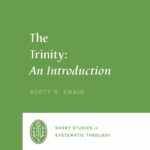
Jim Cassidy reviews Scott Swain, The Trinity: An Introduction (Crossway)
From the Publisher
The Trinity is one of the most essential doctrines of the Christian faith.
The eternal God existing as three distinct persons—Father, Son, and Spirit—can be difficult to comprehend. While Christians often struggle to find the right words to describe this union, the Bible gives clarity concerning the triune God’s being and activity in nature (creation), grace (redemption), and glory (reward). In this concise volume, theologian Scott Swain examines the doctrine of the Trinity, presenting its biblical foundations, systematic-theological structure, and practical relevance for the church today.
Scott R. Swain (PhD, Trinity Evangelical Divinity School) serves as president and James Woodrow Hassell Professor of Systematic Theology at Reformed Theological Seminary in Orlando, Florida. He is the author or editor of several books, including The God of the Gospel and Retrieving Eternal Generation. Scott and his wife, Leigh, reside in Orlando, Florida, with their four children. Swain is an ordained minister in the Presbyterian Church in America.
Participants: Camden Bucey, Jim Cassidy
29 April 2021, 4:00 am - Gerald Bray, The Attributes of God
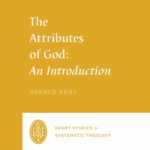
Jim Cassidy reviews Gerald Bray, The Attributes of God: An Introduction (Crossway)
From the Publisher
How can we (created beings) know God (the Creator)?
Throughout history, the church has recognized the importance of studying and understanding God’s attributes. As the Creator of all things, God is unique and cannot be compared to any of his creatures, so to know him, believers turn to the pages of Scripture. In The Attributes of God, renowned theologian Gerald Bray leads us on an exploration of God’s being, his essential attributes, his relational attributes, and the relevance of his attributes to our thinking, lives, and worship. As we better understand God’s attributes, we will learn to delight in who God is and how he has made himself known to us in Scripture.
Gerald Bray (DLitt, University of Paris-Sorbonne) is research professor at Beeson Divinity School and director of research for the Latimer Trust. He is a prolific writer and has authored or edited numerous books, including The Doctrine of God; Biblical Interpretation; God Is Love; and God Has Spoken.
Participants: Camden Bucey, Jim Cassidy
22 April 2021, 4:00 am - On Our Radar [15 Apr 21]

The following books are on our radar for April 15, 2021.
- Greidanus, Sidney. Preaching Christ from Leviticus: Foundations for Expository Sermons (Eerdmans, March 2021). 344 pages. $35.00. Paperback.
- Ryken, Leland and Mathes, Glenda Faye. Recovering the Lost Art of Reading: A Quest for the Good, the True, and the Beautiful (Crossway, March 2021). 304 pages. 21.99. Paperback.
- Bredenhof, Reuben. Weak Pastor, Strong Christ: Developing a Christ-Shaped Gospel Ministry (Reformation Heritage Books, March 2021). 144 pages. $14.00. Paperback.
- Tietz, Christiane. Karl Barth: A Life of Conflict (Oxford University Press, April 2021). 448 pages. $32.95. Hardcover.
- Baucham Jr., Voddie T. Fault Lines: The Social Justice Movement and Evangelicalism’s Looming Catastrophe (Salem, April 2021). 270 pages. $24.99. Hardcover with jacket.
- Levering, Matthew & Plested, Marcus. The Oxford Handbook of the Reception of Aquinas (Oxford University Press, March 2021). 856 pages. $165.00. Hardcover.
- Nichols, Stephen J. R. C. Sproul: A Life (Crossway, March 2021). 400 pages. $34.99. Hardcover with jacket.
Participants: Camden Bucey, Ryan Noha
15 April 2021, 4:00 am - More Episodes? Get the App
Your feedback is valuable to us. Should you encounter any bugs, glitches, lack of functionality or other problems, please email us on [email protected] or join Moon.FM Telegram Group where you can talk directly to the dev team who are happy to answer any queries.
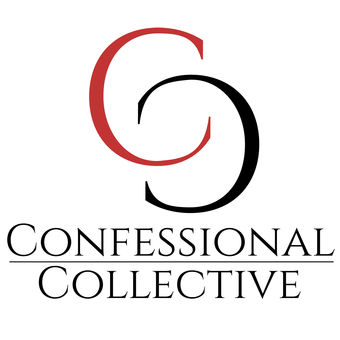 Confessional Collective
Confessional Collective
 Five For Fruit | Five Minutes of Reformed Theology | The Christian Podcast For The Busy Believer
Five For Fruit | Five Minutes of Reformed Theology | The Christian Podcast For The Busy Believer
 Society of Reformed Podcasters
Society of Reformed Podcasters
 Westminster Confession
Westminster Confession
 East of Eden
East of Eden
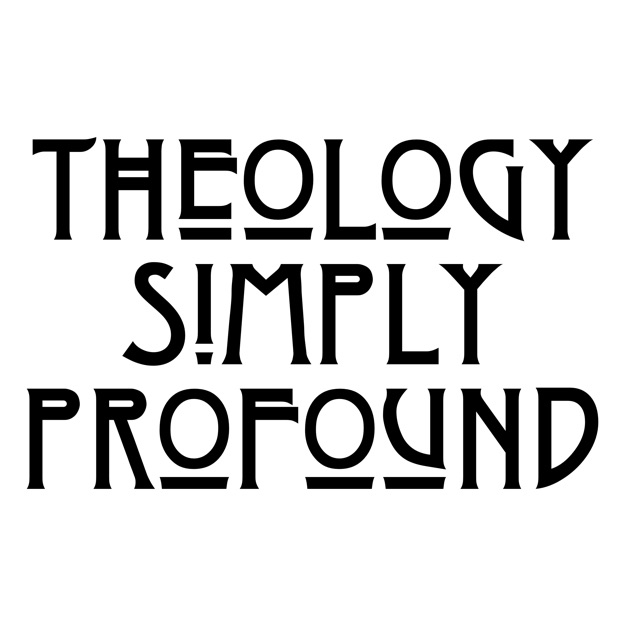 Theology Simply Profound
Theology Simply Profound